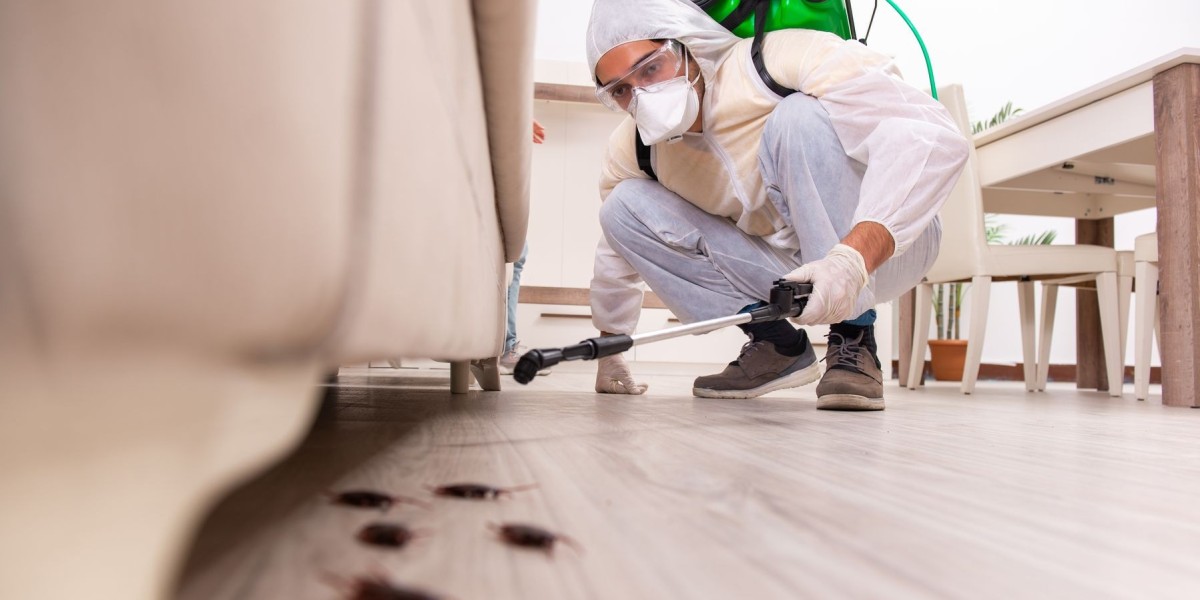Many people live with pests longer than they should, either because they don’t know where to start or they assume DIY solutions will do the job. But professional training in pest management changes everything—for both technicians and the families they serve.
The Everyday Problem With Pests
New Yorkers know the struggle well. Rats scurry through subway tunnels, cockroaches sneak into apartments, and bedbugs sometimes spread across entire blocks. These aren’t minor inconveniences—they’re health hazards, property risks, and constant stressors.
For tenants, the problem often starts with small signs: droppings in the kitchen, scratching noises behind walls, or tiny bite marks in the morning. At first, the situation seems manageable with sprays or traps. But pests are stubborn, and the quick fixes usually fall short.
The deeper issue isn’t just the pests—it’s the lack of reliable expertise. Too many households rely on trial-and-error methods, while many aspiring technicians never get beyond basic pesticide handling without structured education.
Why the Struggle Gets Worse
When the problem isn’t solved correctly the first time, it multiplies. Mice build nests inside insulation, termites eat away at wood beams, and roaches contaminate food storage areas. Families end up spending hundreds of dollars replacing groceries, repairing wiring, or even moving out temporarily.
This cycle of frustration is equally tough on those trying to start a career in pest management. Without the proper training, new technicians often rely on guesswork. They may treat the wrong entry points, apply products inconsistently, or overlook health and safety protocols. Instead of building trust with clients, they leave homeowners feeling skeptical.
That’s why structured training through pest control school has become such a critical resource. It’s not about memorizing chemical names—it’s about learning how to diagnose infestations, apply treatments safely, and prevent problems from returning.
A Real Case From New York City
Consider a case from Queens, where a family living in a pre-war apartment building faced a relentless mouse infestation. The building’s age meant gaps around radiators, worn-out baseboards, and shared walls between units—perfect hiding places for rodents.
The family tried store-bought traps for months, but the mice kept coming back. It wasn’t until the building management called in a licensed pest control team that the real issue came to light. The technicians, who had completed specialized pesticide classes, identified multiple entry points not visible to the tenants. They sealed gaps around pipes, placed tamper-proof bait stations, and educated the residents on proper food storage.
Within a few weeks, the infestation was under control, and the building had a new prevention plan. The difference wasn’t luck—it was the technicians’ training. Their experience in pest control school gave them the practical knowledge to see what untrained eyes missed.
Why Training Matters More Than Ever
Pest management isn’t as simple as spraying and walking away. It requires a blend of science, safety, and strategy. A trained professional understands:
How pests behave in different environments (apartments vs. commercial kitchens)
Which products are safe for children, pets, and sensitive individuals
How to track long-term patterns rather than focusing on short-term fixes
This is where pesticide classes connect with broader training in pest control school. One teaches safe handling and legal compliance, while the other develops problem-solving skills for complex infestations. Together, they create professionals who not only eliminate pests but also earn long-term trust from clients.
How Pest Control School Builds Confidence
For someone considering the field, pest control school offers more than textbooks. It’s hands-on practice, mentorship from seasoned technicians, and real-world case studies that mirror what happens every day in New York and beyond.
Students learn how to:
Assess structural vulnerabilities like cracks, leaks, and poor ventilation
Choose the safest treatment method for different settings
Communicate clearly with clients who are often stressed or frustrated
Prevent repeat infestations through education and follow-up care
These skills don’t just make someone employable—they build confidence. A graduate can walk into any property, whether it’s a Midtown office or a Brooklyn brownstone, and know they have the tools to handle it.
The Bigger Picture for Homeowners
For families dealing with pests, knowing that technicians receive formal training is reassuring. No one wants an amateur spraying chemicals blindly around their children or pets. Education translates directly into safer homes and healthier communities.
For aspiring professionals, the path is equally rewarding. Pest control school isn’t just about passing an exam—it’s about building a career that genuinely helps people. The demand is steady, the work is varied, and every job solved feels like a win against a stubborn enemy.
Taking the Next Step
If pests are keeping you up at night—or if you’re considering stepping into this line of work—the solution starts with education. Pest control school and targeted pesticide classes don’t just provide knowledge; they prepare people to make real changes in homes, businesses, and entire neighborhoods.
Don’t let another season go by with the same frustrations. Whether you need professional help now or you’re ready to train for the future, reaching out to a trusted pest control expert is the most important step.








